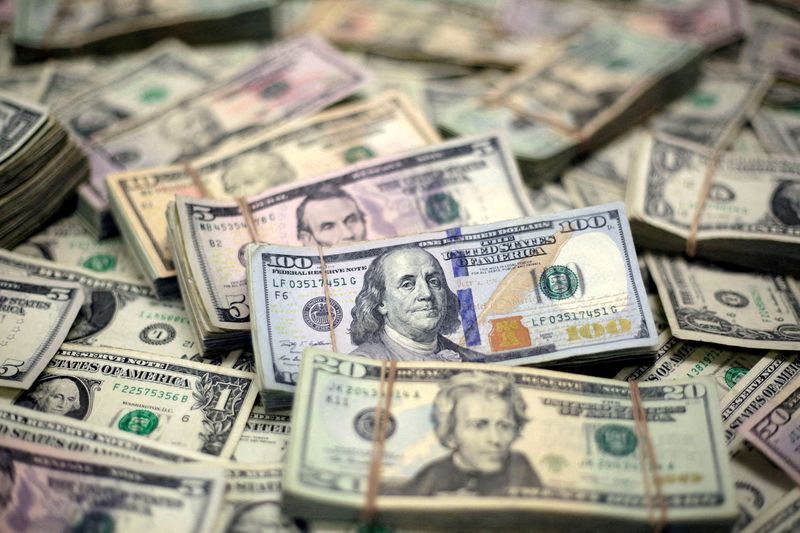By Brigid Riley
TOKYO (Reuters) -The dollar steadied against major peers on Friday, as investors awaited the U.S. jobs report to confirm economic resiliency heading into the Federal Reserve’s monetary policy meeting and a close-call U.S. presidential election next week.
The yen held onto Thursday’s gains as investors continued to digest a less dovish message from the Bank of Japan in the previous session.
The U.S. dollar started the month off at a lower level after coming under pressure against the yen and on Thursday.
But the greenback’s monthly gains in October were the biggest since September 2022, as investors pared back aggressive Fed rate cut bets and weighed the U.S. election outlook.
U.S. nonfarm payrolls data closes out the week, with economists polled by Reuters estimating 113,000 jobs were added in October, although analysts say the number could be impacted by recent hurricanes.
That’s likely to make the October jobs report “incredibly hard to read,” Tapas Strickland, head of market economics at National Australia Bank, wrote in a note.
The unemployment rate, expected to come in at 4.1%, may offer a clearer picture of labour markets.
“Such an outcome would likely see the unemployment rate coming in well below the FOMC’s September projections of the unemployment rate lifting to 4.4% in Q4 2024. And thus continue to question the need for rate cuts,” Strickland said.
Data overnight suggested upward price pressures continue to ease, adding to a trend of upbeat data and supporting bets that the Fed will cut interest rates by 25 basis points next week.
The dollar index, which measures the greenback against six major currencies, last rose 0.06% to 103.94.
The yen was down 0.11% at 152.18 per dollar.
On Thursday, Japan’s central bank maintained ultra-low interest rates but said risks around the U.S. economy were somewhat subsiding, signalling that conditions are falling into place to raise interest rates again.
“We think the chances of a Dec. rate hike have somewhat increased after Gov. (Kazuo) Ueda’s press conference,” Morgan Stanley MUFG economists Takeshi Yamaguchi and Masayuki Inui wrote in a report on Thursday.
Their base case remains for the BOJ to raise rates again in January to 0.5%, although they noted factors such as the dollar/yen exchange rate and inflation data leading up to the year-end decision will be important.
The euro stood around a two-week high against the greenback, buoyed this week after data showed euro zone inflation accelerated more than expected in October. It was last down 0.04% at $1.0879.
Read the full article here
